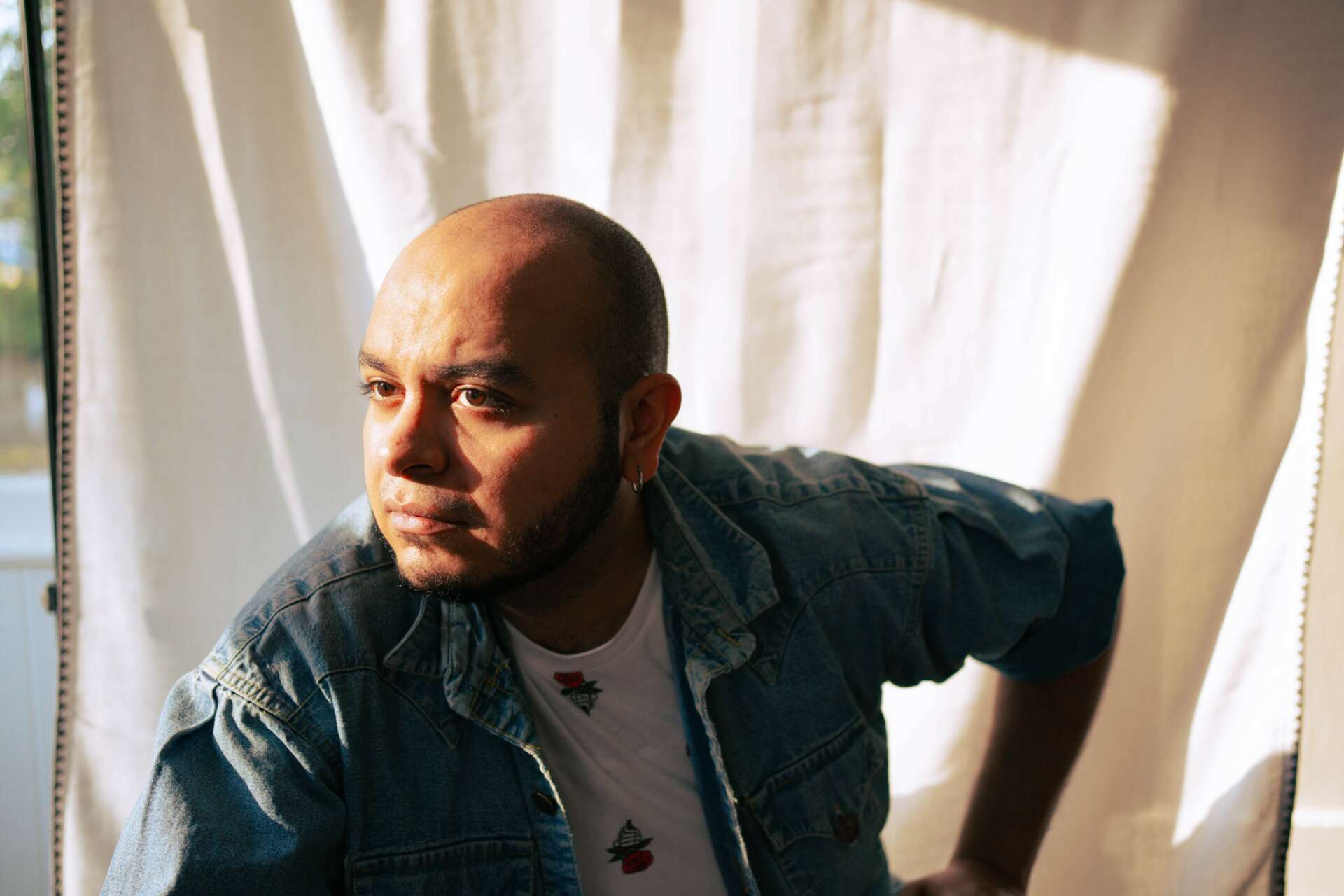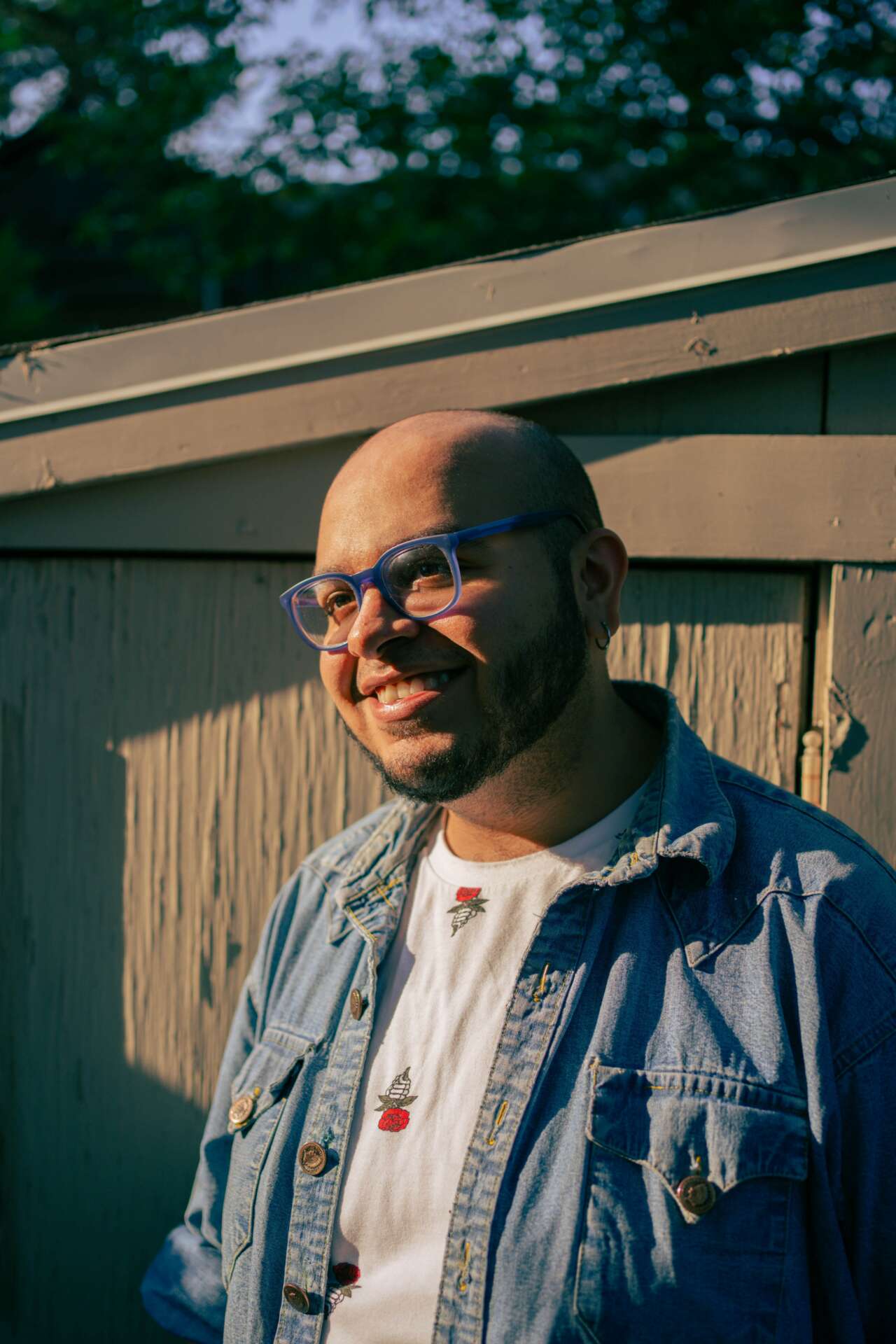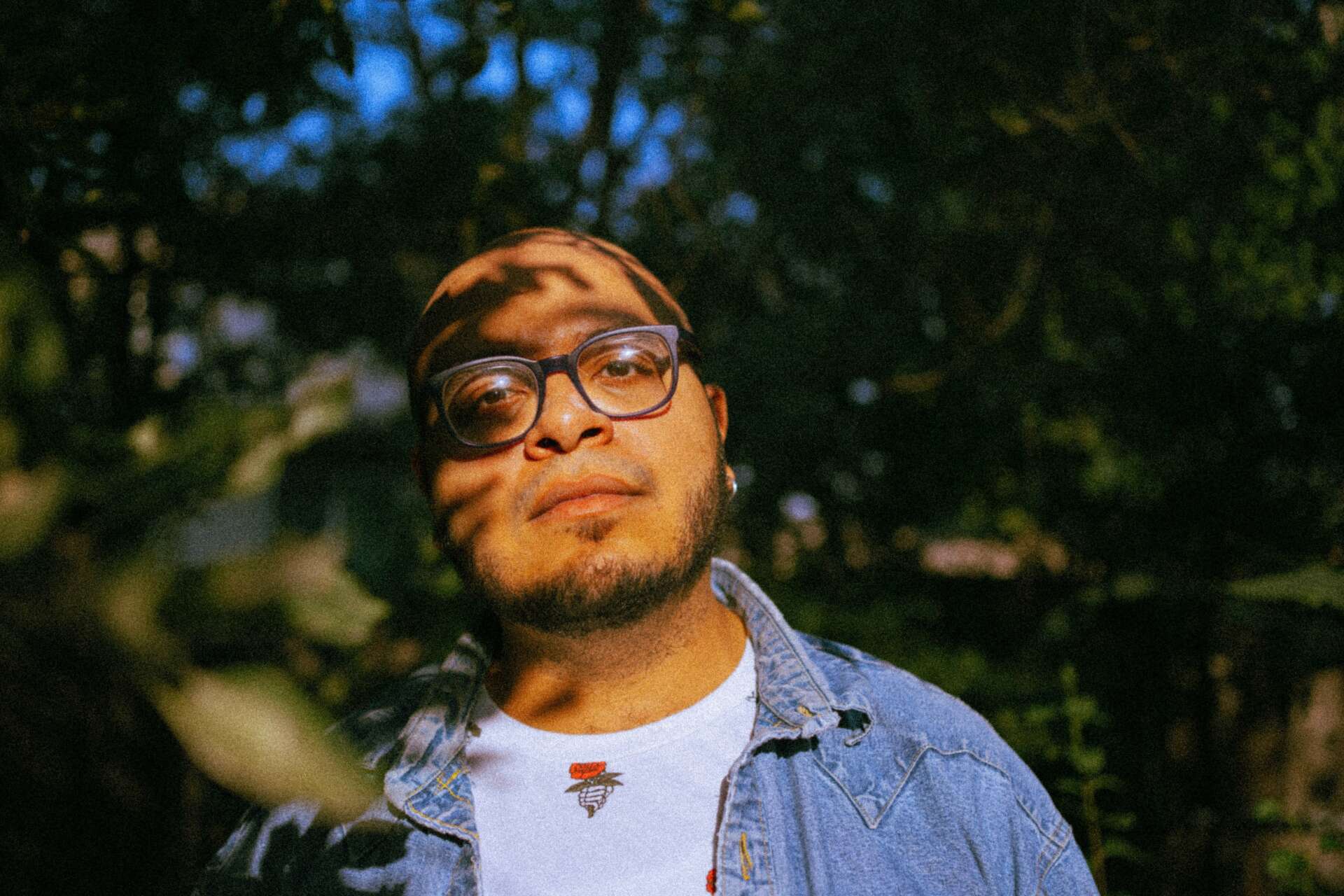We caught up with the brilliant and insightful Aerik Francis a few weeks ago and have shared our conversation below.
Aerik, appreciate you joining us today. How did you learn to do what you do? Knowing what you know now, what could you have done to speed up your learning process? What skills do you think were most essential? What obstacles stood in the way of learning more?
My first answer to how I learned to write poetry is simply learning to read and reading to learn. I’m so grateful to my family and particularly my mom who was so insistent on reading together.
I’ve been a lover of poetry for what seems like my whole life but I never really thought of it as a career or life path until I was 25 years old. And the way I tapped in was simply by showing up in any and all ways I had time for. I told myself that I should try to make time to read my poems to an audience once a week, and I started going to any open mic I could find, getting to know folks and learning about more scenes over time. I applied (and still continue to apply to this day) to any fellowship or residency or grant I could find that I was eligible for, researching samples and cover letters and previous winners. I looked at books differently, paying more attention to all of the words, from the publisher information to the notes and acknowledgments. I looked at the websites and CVs of artists I admired and saw how they were moving through the literary and performing worlds. I am still doing this, to this day.
I’m always in awe of how folks make room for art in their lives and all the labor that goes into every little step. It’s a constant practice! Writing and reading and performing and submitting. All of the rejections, all of the no’s, all of the time spent, all it takes to put together events, to even just make a social media post– and all of the creating and crafting and writing. Bless the artists, we are all, in our ways, still learning, and for that, have much to offer. Every time I step to the mic I get a nervous rush, and every time I arrive at an empty page, an open field, I feel a certain anxiety. Every time.
The obstacles that stand in the way of learning more are the same obstacles that stand in the way of living: the large and little weights of systems of oppression grinding through times and lives. People need to have their needs met in order to live and create– access to food, water, housing, employment/income, utilities, dignity. I believe that art can create movement. At its best, art is a part of movement work to ensure that people can have their needs met. Poetry is so often a space in which people of many different backgrounds can come together.
To go back to the first question, friends and community are how I learned to do what I do. They are who make it all possible. They are the ones I can talk with about my work, who share opportunities with me, who pave paths that I may follow behind, who give me light when I am pathing my own ways. I’m grateful all the time for friends near and far who help keep me afloat and I hope I can do the same for them and pay it forward to the future.


Great, appreciate you sharing that with us. Before we ask you to share more of your insights, can you take a moment to introduce yourself and how you got to where you are today to our readers
Hullo there! My name is Aerik Francis and I am a poet born & based in Denver, Colorado, USA. I leaned into poetry as an artform because it was a space where I could embrace critical theory and social justice openly, creatively, and personally. I could play with language and how I express myself. I found academic spaces to be very toxic, even when it came to exploring experimental concepts, and that the poetry space was where I could more easily and truly be myself.
As a poet, I have a lot of services to offer. I am both a writer and a performer with a keen awareness of language and its emotional impact. I mainly look for opportunities to read and perform my poems to audiences. I also offer generative poetry workshops for youth and adults alike. I can also do commissioned poems, editing consultations for poetry packets and manuscripts. Generally it means I can also do hosting/emceeing work as well as freelance writing projects. I also would love to read some poetry at weddings, so if you are getting married, that’s something to consider!
I am very proud of all the work that I have released this year in 2022. It has been an interesting year in my poetry journey because the year before, 2021, was filled with fellowships and publications concurrent with my dad being sick. This year the grief of his loss really set in, and it was also a year of emotional hardships, hard transitions, the close of my Saturn return, and rejections on many other fronts. Still, this year has also been very lucky in terms of performances, workshops, conferences, opportunities, and releases. My debut chapbook BODYELECTRONIC was released this year in April with Trouble Department, and I have been so happy and surprised by how far it has traveled and how people are reacting to the work. This is a project that I felt was very me, but also very strange and talks about a number of potentially explicit topics so I had no idea how people were going to react. My poetry/song EP SYZYGY was also released this year on bandcamp and this project has been most exciting in seeing many creative vectors that sprouted from this project. These are poems, lyrics, songs, rituals, visuals, movements, vibes, and they surprise me every time I listen. This project really helped shape the audio project for BODYELECTRONIC that will be released on streaming platforms by the end of the year. I hope it is a project that will inspire people to return to the chapbook, certainly, but I also hope it can open up the field of audio poetry and what directions poets can go with their works.
I’m really looking forward to all the new directions for next year. In 2023 my chapbook MISEDUCATION will be coming out with New Delta Review as the winner of their annual chapbook contest, chosen by judge Dorothy Chan. Nobody is ready for this collection of poems– whenever I go back to the collection I always like “Wow, I really did that!” As much as I hope the play and experiments with form and language go noticed, sure sure sure, what I really truly hope for this collection is that folks who have had traumatic relationships with academia and institutions of education can be seen and felt and heard. And then my full-length poetry collection manuscript BODYPOLITIC feels so close to getting picked up for publication. It was shortlisted for a few poetry prizes this year, so I’m hoping I can say it will be coming out in the next year or two. In the meantime, more single poems from the collection are being published with journals and anthologies, so be on the lookout for more singles over the coming months.
There is implicitly the “what’s on the horizon” question, and to that I say I have so many more projects cooking up. I have TWO MORE full-length poetry manuscripts that are at solid draft stages: one called ubiquities that is about family and the continuing relationships with those who have died; the other called ASYMPTOTIC (Toward A Queer Love Poem) that is a collection of poems dedicated to situationships and thwarted romances. There’s more, too, but that’s all I will say for now. So, you know, poetry publishers, hit me up, I have plenty of material!


Have any books or other resources had a big impact on you?
I love any opportunity to talk about books– so many books have shifted my way of thinking, writing, and being. Theory was really the catalyst to my poetry life, so I always list 3 thinkers in particular whose use of language forever opened me up: Sara Ahmed’s book Living a Feminist Life, Saidiya Hartman’s book Scenes of Subjection, and Christina Sharpe’s book In The Wake.
There are so many poetry books that have stayed with me and shaped how I think about craft: Taylor Johnson’s book Inheritance, Dionne Brand’s book The Blue Clerk, Harryette Mullen’s book Recyclopedia, Morgan Parker’s book There Are More Beautiful Things Than Beyoncé, Anthony Cody’s book Borderland Apocrypha, Solmaz Sharif’s book Look, Layli Long Soldier’s book Whereas, Diana Khoi Nguyen’s book Ghost Of, and Jos Charles’s book Feeld.
Most recently, books of poetry that have really astounded me were I’m So Fine by Khadijah Queen, Gash Atlas by Jessican Lawson, and Black Under by Ashanti Anderson.
I’ve also started reading prose again, which has been lovely, and some great reads I’ve finished recently are Dear Senthuran by Akwaeke Emezi and Potted Meat by Steven Dunn.
And then books I’m looking forward to reading soon include Gumbo Ya Ya by Aurielle Marie, Mutiny by Phillip B Williams, A Year by Jos Charles, Customs by Solmaz Sharif, Civil Service by Claire Schwartz, Yellow Rain by Mai Der Vang, Your Emergency Contact Has Experienced An Emergency by Chen Chen, Muse Found in a Colonized Body by Yesenia Montilla, and Bittering the Wound by Jacqui Germain.
So many books! So much more to read and so much always coming out.
Are there any resources you wish you knew about earlier in your creative journey?
One thing that is hard to wrap my head around to this day but I definitely wish I understood earlier is that the money exists for whatever you want to do. The money exists! You can really start your own whatever (podcast, journal, organization, series, platform, etc etc etc) right now and there are likely grants that you can apply for that will fund it. I think there is a kind of linear narrative that we are fed that we must rise up in the ranks and we must become disciplined in order to pursue our passions, but the reality is that we can start now. It won’t be easy, it is always an uphill fight. But that it is possible and doable is everything– whoever you are, wherever you are, you can use what you already have to make something bigger than you can imagine and so beautiful.
As far as a practical resource, I cannot recommend free text-to-speech websites/applications enough. Reading is so essential to the craft of writing, but so often, reading is a very difficult labor. In the thick of life, sometimes it is difficult to find time to sit down and just read. What text-to-speech offers is a way to have material read to you, either as you read it or as you multi-task (or try to, anyway). It makes it much easier for me to read essays and articles. I also love it as an editing tool: to have my work read aloud back to me so that I can catch typos or errors, or just to hear it in a different cadence than my own voice.
Contact Info:
- Website: phaentompoet.com
- Instagram: @phaentompoet
- Twitter: @phaentompoet
Image Credits
Sydónne Blake


